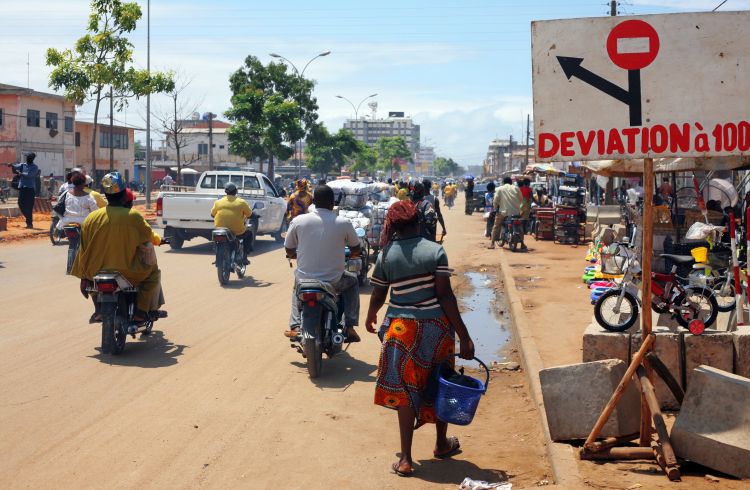Travel to Benin: Local Laws and Transport Safety Tips
Our tips for travelers to Benin, what you need to know about local laws, transport, gas shortages and road hazards.
 Photo © Getty Images/peeterv
Photo © Getty Images/peeterv
Our content is currently out of date. If you have traveled to Benin recently, share your experiences and tips in the comments section below.
Local laws and customs in Benin
Benin is again fairly benign in terms of local laws. However, like most countries, the possession, use or trafficking in illegal drugs is a serious offense and can result in lengthy prison sentences and heavy fines. It is also prohibited to take pictures of military zones, airports or government offices without the formal consent of the government. Homosexuality is also illegal.
You should respect religious and social traditions, particularly Voodoo as nearly 20% of the population practice Voodoo or Vudon.
Also, you should always ask permission before taking pictures of people.
Beninese citizens may react angrily if photographed without their prior approval.
It is best to keep a notarized photocopy of the photo page of your passport with you at all times when traveling in Benin.
Getting around
Many of the main streets in Contonou are paved, but side streets in the city are mostly dirt and full of potholes. Generally, roads throughout Benin are in poor condition and are often impassable during the rainy season, which is from mid-June to Mid-September.
Four-wheel drive vehicles with full spare tires and emergency equipment are recommended. Notable exceptions include the road linking Cotonou in the south to Malanville on the border with Niger in the north, and from Parakou in central Benin to Natitingou in the north-western part of the country, which are in fairly good condition.
In the past few years, major work has been done on the roads in Benin. Plans exist for a new international airport with associated roads, and other projects are underway in the North of Benin to improve conditions in the more rural areas.
Contonou has no public transportation system; many Beninese people rely on bicycles, mopeds, motorbikes, and zemidjans (moped taxis). Buses and bush taxis offer service in the interior. These are not always safe or well-maintained. Poorly maintained and overloaded transport and cargo vehicles frequently break down and cause accidents.
Drivers often place branches or leaves in the road to indicate a broken-down vehicle is in the roadway.
Gasoline smuggled from Nigeria is widely available in glass bottles and jugs at informal roadside stands throughout Cotonou and much of the country. This gasoline is of unreliable quality, often containing water or other contaminants that can damage or disable your vehicle. You should only ever purchase fuel from official service stations.
There are periodic gas shortages, which can be particularly acute in the north of the country where there are few service stations.
A few other things to be aware of on the roads throughout Benin:
- Undisciplined & unpredictable driving practices
- Poorly indicated construction work
- Unmarked speed bumps
- Livestock on the road
- Vehicles without headlights, tail lights and/ or brake lights
- Night driving: with few exceptions, Cotonou and other cities lack street lighting
The National Police periodically conduct vehicle checks at provisional roadblocks in an effort to improve road safety and reduce the increasing number of carjacking. When stopped at such a roadblock, you must have all of the vehicle's documentation available to present to the authorities.
Simple and flexible travel insurance
You can buy at home or while traveling, and claim online from anywhere in the world. With 150+ adventure activities covered and 24/7 emergency assistance.
Get a quote
No Comments